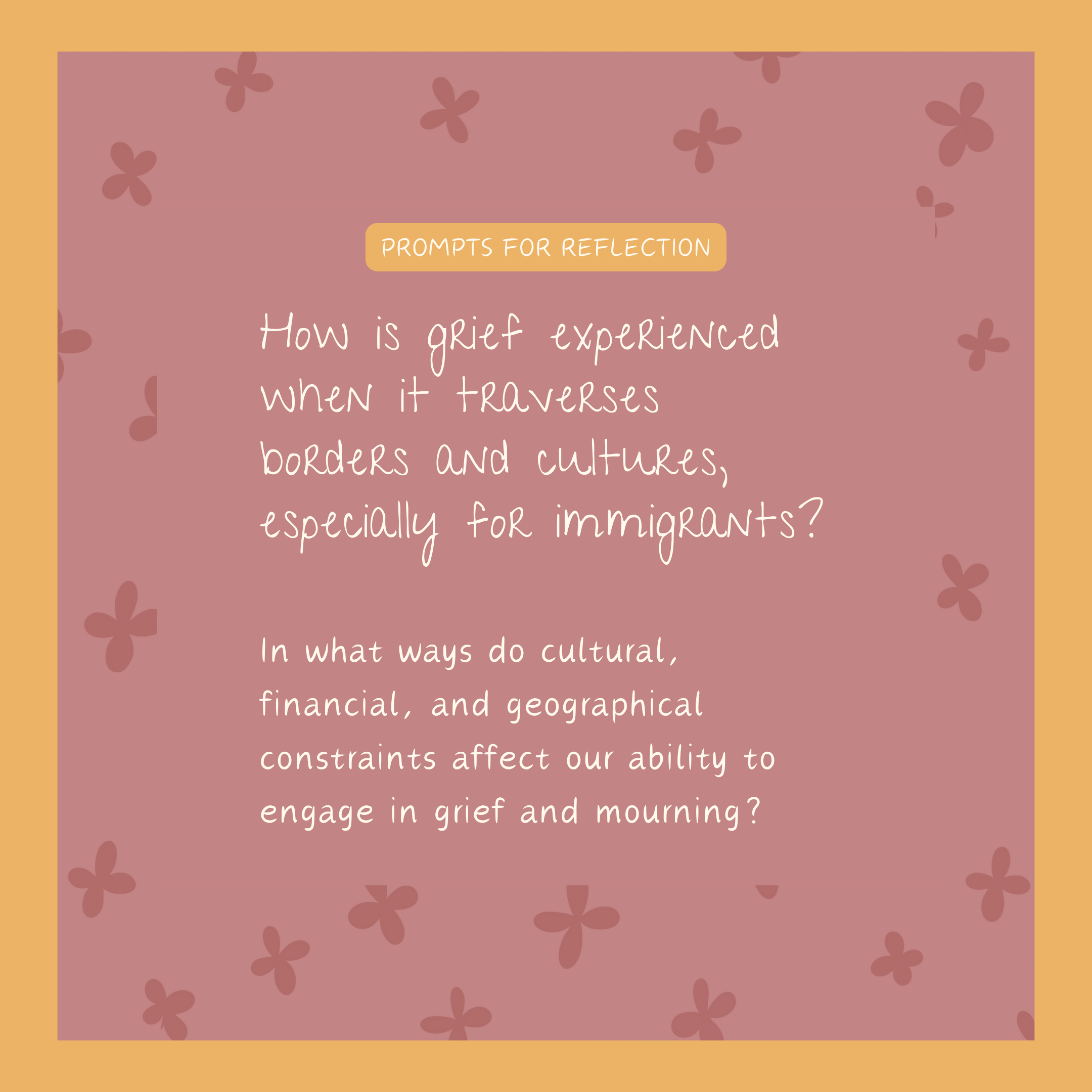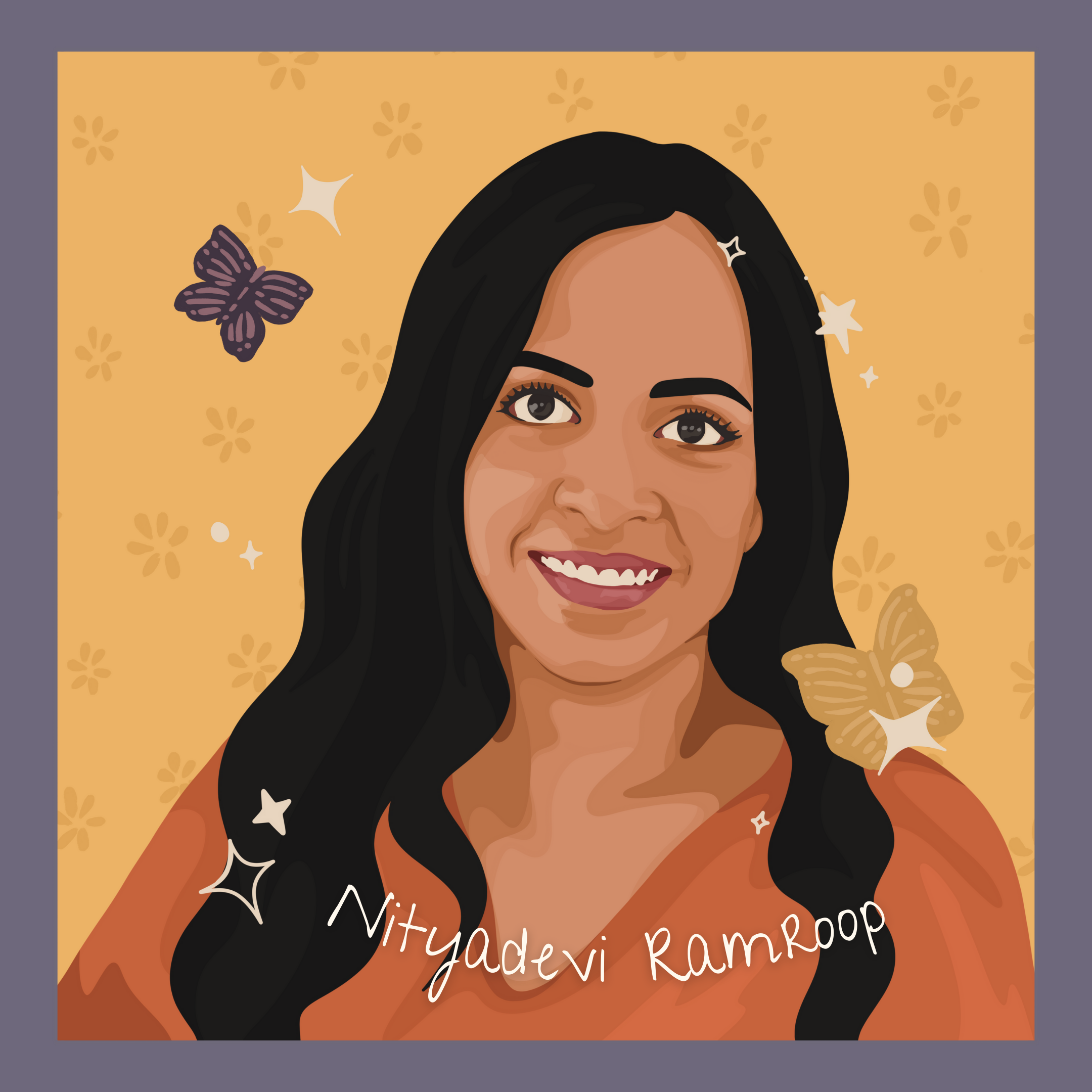
A Letter to Our Community
In 2022, we shared Their Light Remains as an offering to pause, mourn, and honor the devastating losses of ten South Asians to gender-based violence. As 2023 unfolded, we heard of not one or two, but the loss of seventeen lives to GBV in the South Asian American community. And as the summer ended, we found ourselves grappling with universal echoes of grief in the face of multiple genocides and unspeakable acts of violence.
In this year’s Their Light Remains series, we honor the lives of—
Nanitin Ponnazhakan (age 8)
Jaahnavi Kandula (age 23)
Nabaruna Karmakar (age 33)
Misbah Batool (age 32) and Iazia Zanoor (age 2)
Pratibha Y. Amarnath (age 35) and Yash Honnal (age 6)
Diana (age 42)
Sonal Parihar (age 42), Sonal’s son (age 10), and Sonal’s daughter (age 6)
Nityadevi Ramroop (age 35)
Nawreen Nahar Tuli (age unknown)
Teena Kamal (age 54) and Arianna Kamal (age 18)
Manjeet Kaur (age 38)
We also honor the lives of—
The martyrs we’ve lost to state-sponsored violence in Palestine, Sudan, Congo, Kashmir, & so many more places around the world
Wadea Al-Fayoume (age 6), Dr. Talat Jehan Khan (age 52), Jasmer Singh (age 66), and every other life lost to Islamophobia, anti-semitism, & other forms of hate
And every survivor we’ve lost whose names we don’t and won’t know
This year, we offer you the space to learn about the stories of each person on our social media, to process and explore grief through our zine, and to understand the conditions that enable and perpetuate violence with this letter. We write this letter with the intention of sharing the stark patterns that emerged as we learned more about each case. While statistics tell us the prevalence of GBV in the South Asian diaspora in the US, these stories underscore the urgency of addressing and ending the root causes and intersections of violence.
6 of the 11 homicide cases we examined involved the death of a youth.
The impact of intimate partner violence (IPV) rarely stops at one partner; in acts of IPV between two individuals, uninvolved children are sometimes harmed. These children are known as “corollary victims.” Of the 17 lives lost this year, 7 were children, 6 of whom who were killed alongside their mother, sibling, or entire family. Furthermore, one U.S.-based study reported that “over half of IPV-related firearm homicides of child corollary victims included homicide of the adult intimate partner, of which 94.1% were the child victim’s mother”. The heartbreaking loss of youth highlights the pervasiveness of IPV and family violence, leading to the unimaginable - the erasure of entire families.
6 of the 11¹ homicide cases involved gun violence.
Research shows a strong link between intimate partner violence (IPV) & gun violence, with cisgender male abusers being five times more likely to kill their partner if they have access to a gun, and almost two-thirds of all IPV homicides involving gun violence. This issue is urgent and pressing—a pending U.S. Supreme Court case, U.S. v. Rahimi, will determine the constitutionality of a federal law that prevents abusers with restraining orders from owning firearms. Confronting the intersection of gun violence and GBV is not just about disarming individuals; it's an urgent systemic issue.
10 of the 11 homicide cases involved an immigrant woman.
In a study that surveyed South Asian immigrants in the U.S., 57% of the female participants reported experiencing physical abuse, 42% reported experiencing economic abuse, and 29% reported experiencing immigration-related abuse. For many South Asian immigrant survivors, their legal immigration status is tied to their abusive partner, which may lead to exploitation of labor, threats of deportation, or withholding of access to public benefits. Compounding this, immigrant families often face isolation, language barriers, and rigid cultural and gender norms, all of which make it extremely difficult, or nearly impossible, for survivors to access resources and support.
6 of the cases were murder-suicides, claiming the lives of 17 people total.²
In all 11 GBV murder cases, the perpetrator was male-identifying, and among these men, 10 were husbands or fathers of victims, and 10 were South Asian. The cases this year tell a story of the pervasive nature of family violence within the community and how it manifests as a distinct form of gender-based violence. Similar to immigrant women, South Asian men also face rigid ideas of masculinity and stigmas around mental health that may prevent them from seeking support. These findings stress the urgency for research, cultural shifts, and community interventions to support men and harm-doers towards ending cycles of violence.
GBV in the South Asian American diaspora is not an isolated crisis.
The genocides in Palestine, Sudan, Congo, Kashmir, and countless other land back movements highlight a shared struggle against systemic and state-sponsored oppression. It’s no coincidence that women and children are often the first targets of genocidal violence and GBV, eliminating the possibility of future generations holding the histories, cultures, and traumas of their people and land.
Why is this our collective responsibility?
Beyond these statistics lies a profound truth — we collectively bear the weight of generational trauma, held not just in our memories but etched into our very bodies. Many among us have, in some way, encountered or endured violence, even if we don't explicitly identify as survivors. Our understanding of violence is born from our upbringing and cultures, challenging conventional notions of what it means to survive. While this burden can be isolating, it's crucial to recognize that trauma and grief are shared experiences. Survival transcends the confines of the abuser-victim binary; we are survivors not merely of isolated acts of violence but also of deeply ingrained cultural norms and systemic failures. Our collective survival necessitates dismantling external oppressions and unlearning internalized biases. Empowered with the ability to redefine gender roles, community safety, and healing, we reject the narrow paths of "justice." In honoring the lives lost to GBV, we are called to disrupt the cycles of violence and challenge the narratives that sustain them.
In solidarity and with love,
SOAR
If you are called to act in this moment, here’s what you can do:
Share the stories from Their Light Remains to honor the lives we lost
Support organizations to advance safety, healing, & justice for our communities
Join us in the movement to end gender-based violence
Support the WISE Act to increase safety for immigrant survivors
Educate yourself & take action on state-sponsored violence around the globe, including the ongoing genocide in Palestine
We uplift the words of our member organizations and allied partners, offering reflections in response to our community’s losses:
Footnotes:
1 This statistic has been compiled by South Asian SOAR based on the known and public cases from 2023; we expect this number may rise as some cases are currently pending investigation
2 Of the 17 people who died in the murder-suicides, 6 were perpetrators and 11 victims of homicide
Jaahnavi Kandula
•
Santhalatha Rajan & Anish Rajaram
•
Nabaruna Karmakar
•
Misbah Batool & Iazia Zanoor
•
Pratibha & Yash Honnal
•
Diana
•
Sonal Parihar & Children
•
Nityadevi Ramroop
Jaahnavi Kandula • Santhalatha Rajan & Anish Rajaram • Nabaruna Karmakar • Misbah Batool & Iazia Zanoor • Pratibha & Yash Honnal • Diana • Sonal Parihar & Children • Nityadevi Ramroop





















